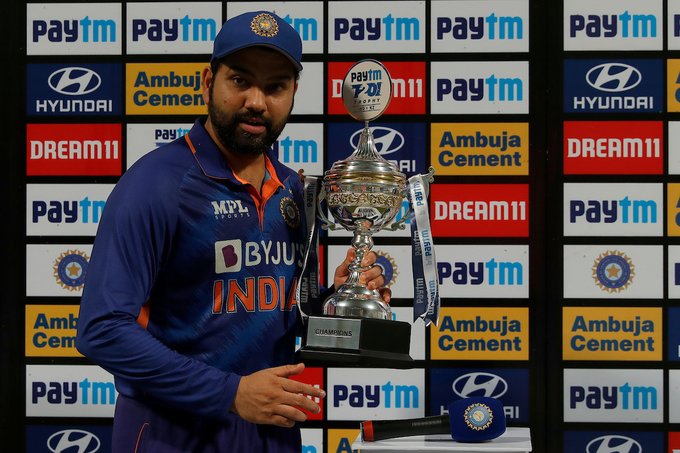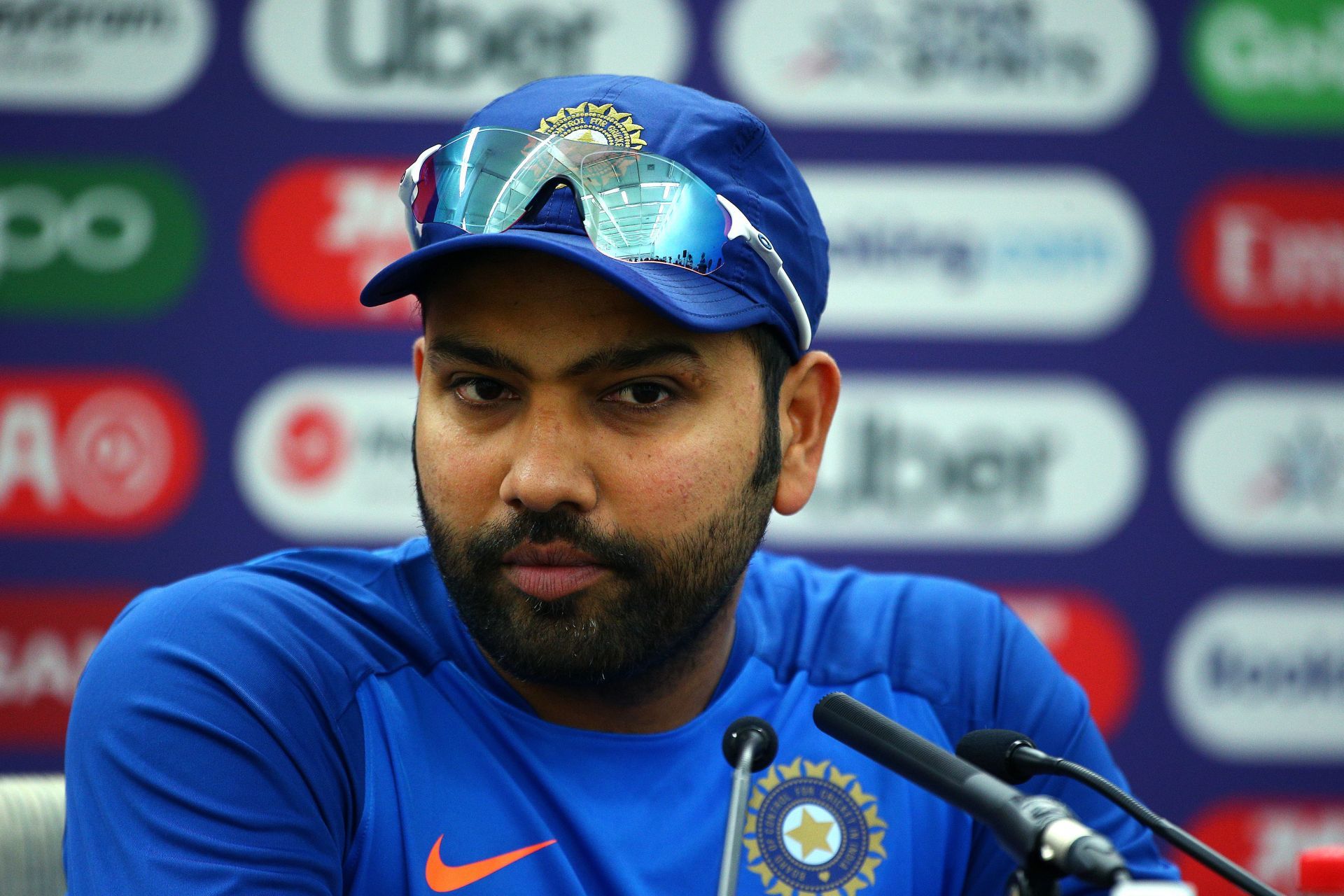
3 reasons why Rohit Sharma as Team India ODI captain is a good move
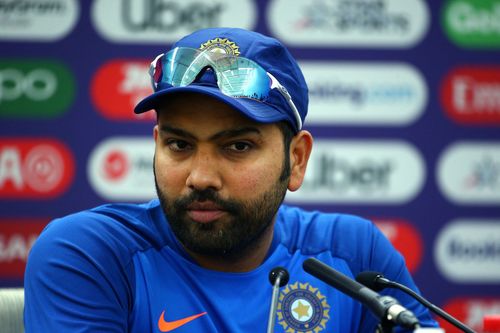
The All-India Senior Selection Committee of the Board of Control for Cricket in India (BCCI) named Rohit Sharma as Team India's new ODI skipper, relieving Virat Kohli of his duties on Wednesday. The selection committee also announced the Indian Test squad for their away three-Test series against South Africa, starting December 26.
Virat Kohli relinquished the T20I captaincy following the T20 World Cup in the UAE and Oman, with Rohit Sharma succeeding him. Conjecture had it that Kohli would lose his ODI captaincy as well. The BCCI confirmed the developments via a tweet.
Rohit Sharma has tasted success whenever he has captained India in white-ball cricket. While he has won 18 of his 22 games as T20I skipper, he has emerged eight out of 10 times as Team India's ODI captain. Rohit was at the helm of affairs when India won the Nidahas Trophy in 2018, as well as the Asia Cup in the UAE the same year.
With the next ODI World Cup set to be played in India in 2023, Rohit's vision will be aligned towards the marquee event.
On that note, here are three reasons why the appointment of Rohit Sharma as Team India's ODI skipper is a good move.
#3 Rohit Sharma - the most successful IPL captain
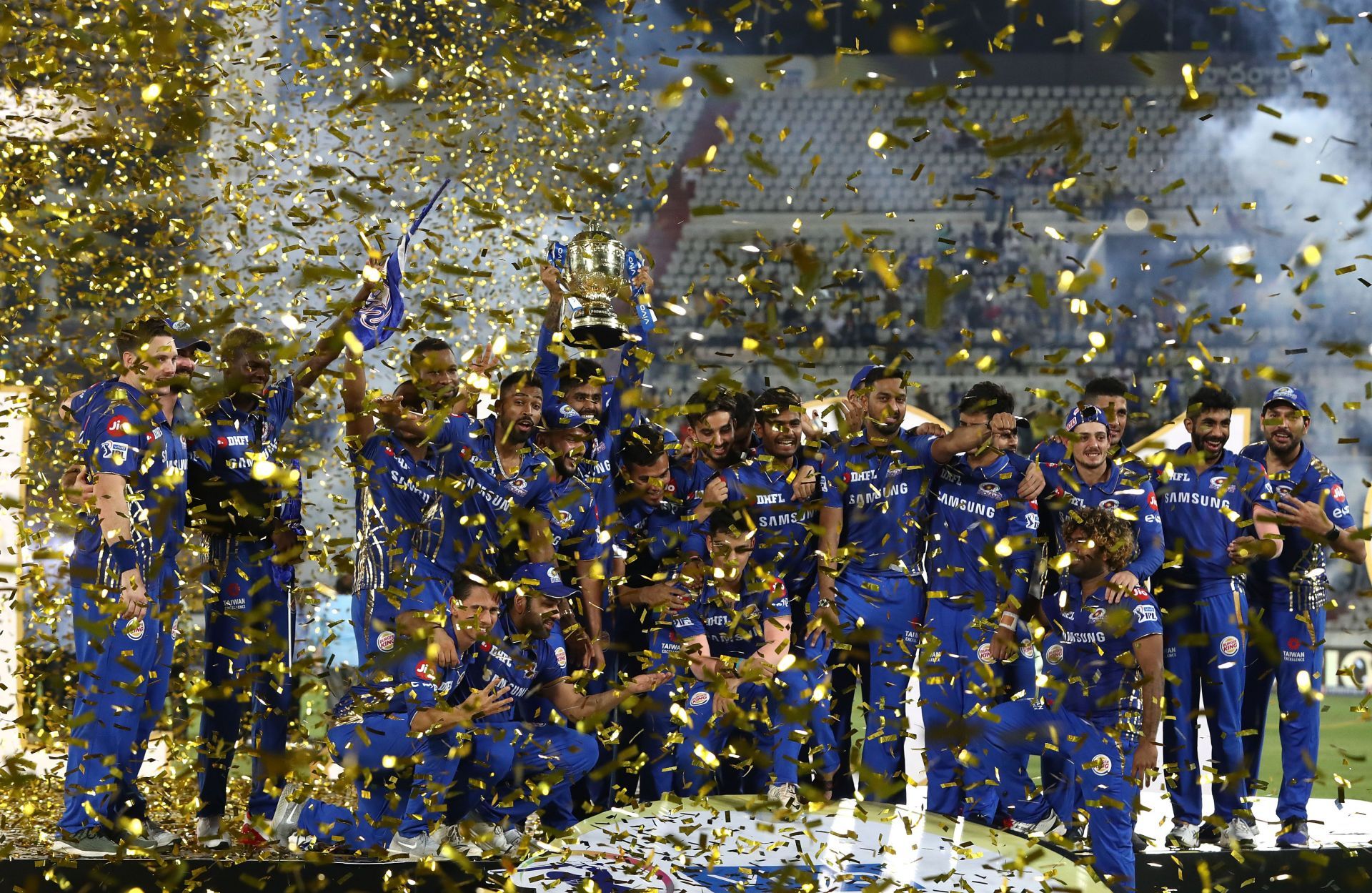
Ever since Rohit Sharma took over the captaincy duties of the Mumbai Indians (MI) midway through the 2013 IPL season, it has been onwards and upwards for both the player and the franchise. Rohit has enjoyed tremendous success as a skipper, leading MI to five IPL titles.
Captaincy is a responsibility Rohit seems to relish, with no telling effect on his batting form as such. With a composed head and a reputation for being tactically astute, the right-handed batter is widely regarded as a master tactician by pundits. Being able to marshall a team full of superstars to great effect speaks volumes of his man-management skills.
With India looking towards the ODI World Cup 2023, Rohit has ample time to put his skills to the fore and build a team for the ICC event. With Rahul Dravid just beginning his tenure as Team India's head coach as well, the new captain-coach combination has sufficient time to infuse their vision into the team, keeping the big event in mind.
#2 Virat Kohli to focus more on his batting
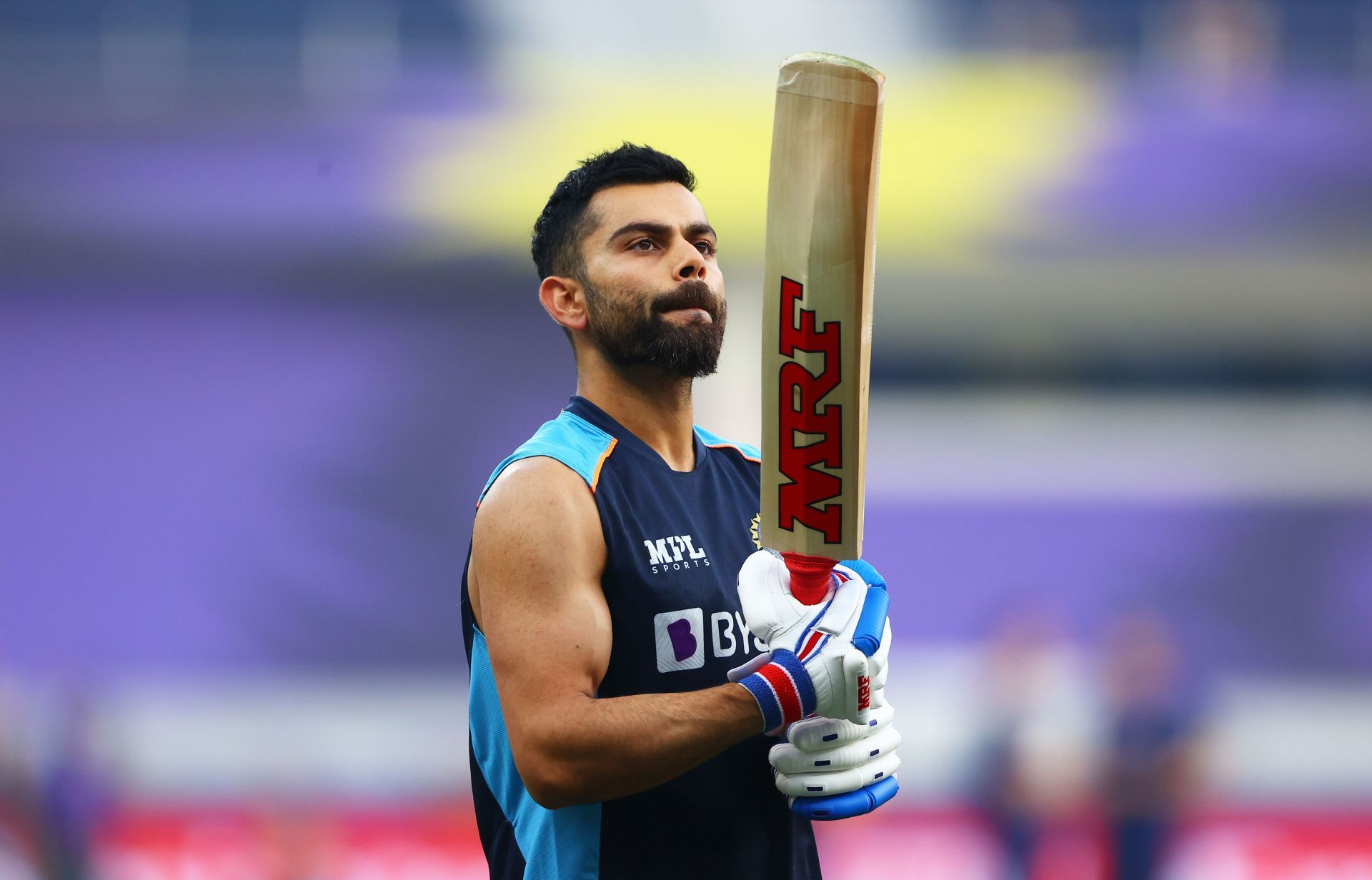
Virat Kohli has arguably been the best batter of this generation. However, it has been a little over two years since India's batting mainstay last scored an international century. While that hasn't necessarily affected the team per se, everybody knows the dominant impact that Kohli, the batter, can have when at his absolute peak.
With Rohit Sharma taking over as ODI skipper, it now gives Virat Kohli the freedom to emphasize more on his batting. The 33-year-old himself acknowledged the need to manage his workload and cited it as the reason behind stepping down as captain of the Indian T20I team and IPL franchise Royal Challengers Bangalore (RCB).
So with the captaincy responsibilities passed onto the shoulders of Rohit Sharma, it could just free up Virat Kohli, the batter. We could well witness another upward surge in the batting returns of Kohli, who remains the lynchpin of India's batting unit. If the weight of captaincy off his shoulders brings about that surge, it would be a win-win situation for the Indian team.
#1 One captain for both ODIs and T20Is
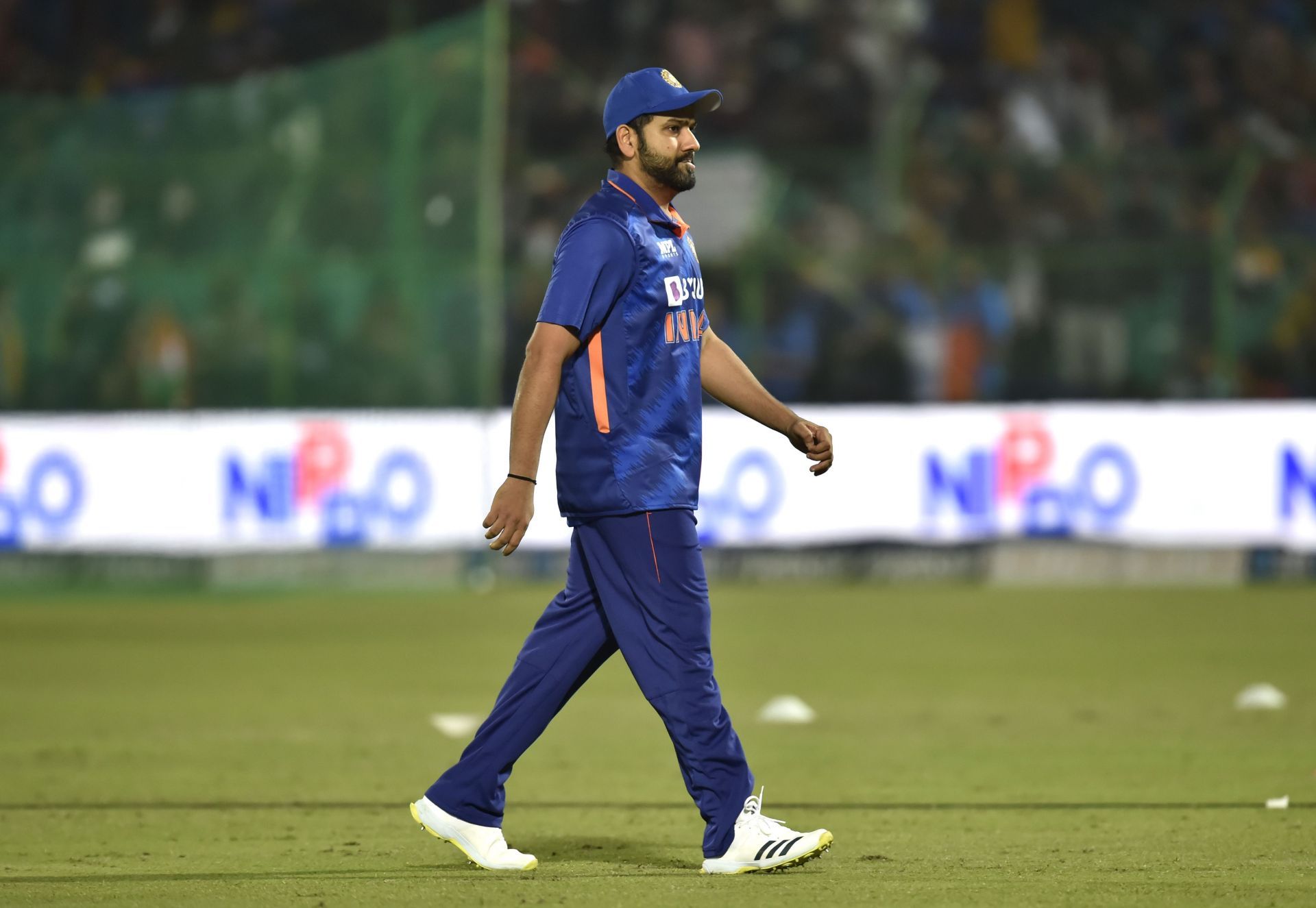
Split captaincy is a concept that teams from across the globe follow, but it hasn't been too common in India. Even when it has occurred, it hasn't been for long. For instance, Anil Kumble led India for a year in Tests before MS Dhoni took over the role post the legendary spinner's retirement. Dhoni, too, stepped down as limited-overs skipper in early 2017, handing over the duties to Virat Kohli, the then Test skipper.
Rohit Sharma being appointed as the limited-overs skipper will see another era of split captaincy in Indian cricket. That said, the benefit for the team would be that Rohit will lead both the ODI and T20I sides rather than just one.
ODIs are believed to be an extension of the T20 format to a good extent in today's era. Keeping that in mind, two different captains with different ideas could lead to a confusion in terms of the brand of cricket the team wishes to play. While Kohli has enjoyed loads of success as India's ODI captain, having one skipper for both the ODI and T20I teams sounds wise and more cohesive.
With Virat Kohli giving up the T20I captaincy, it was expected that his successor Rohit Sharma would be handed the reins of the ODI side too. With one captain for both white-ball teams now, India under Rohit can work towards two World Cups across both formats over the next couple of years.
